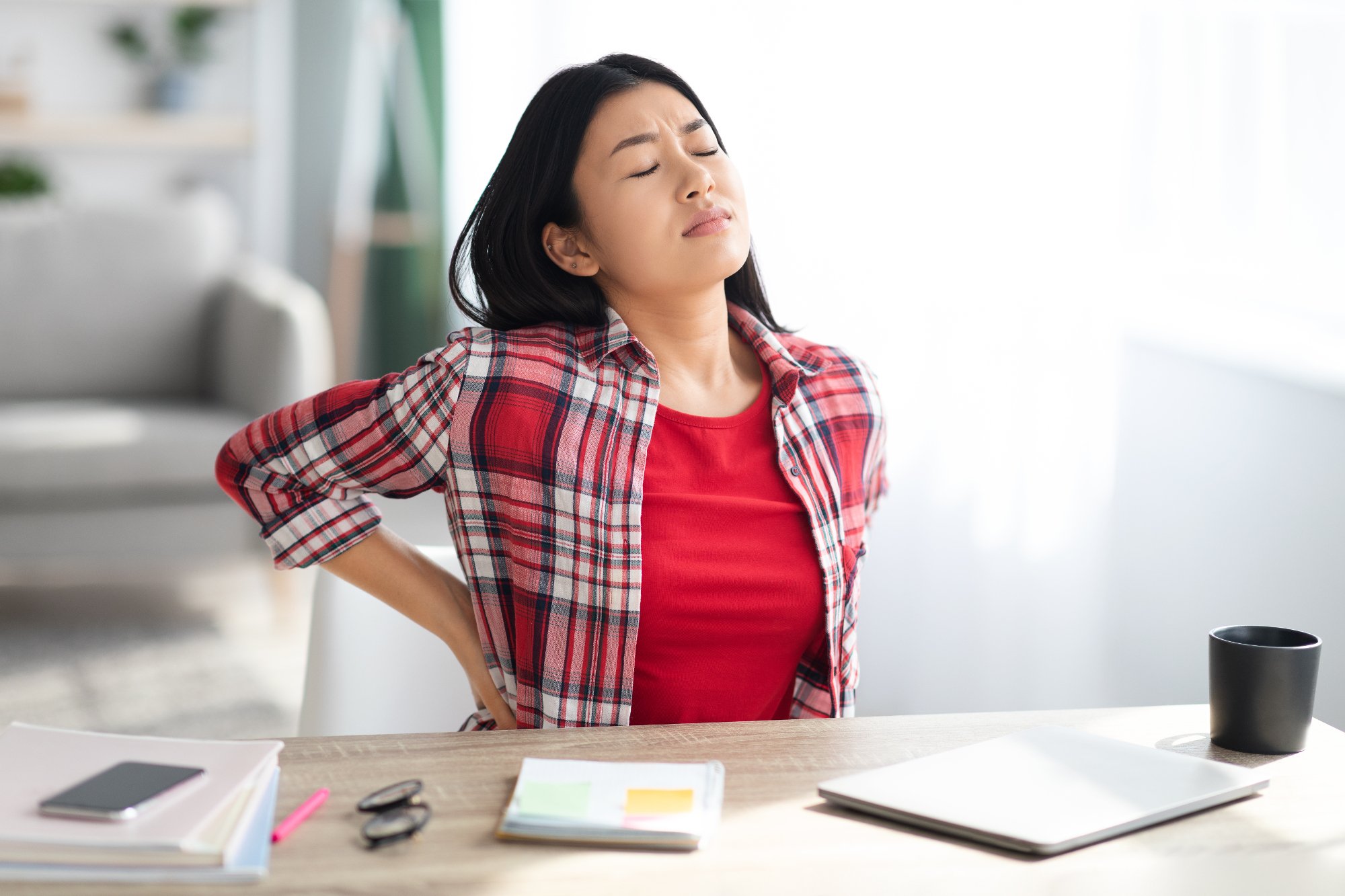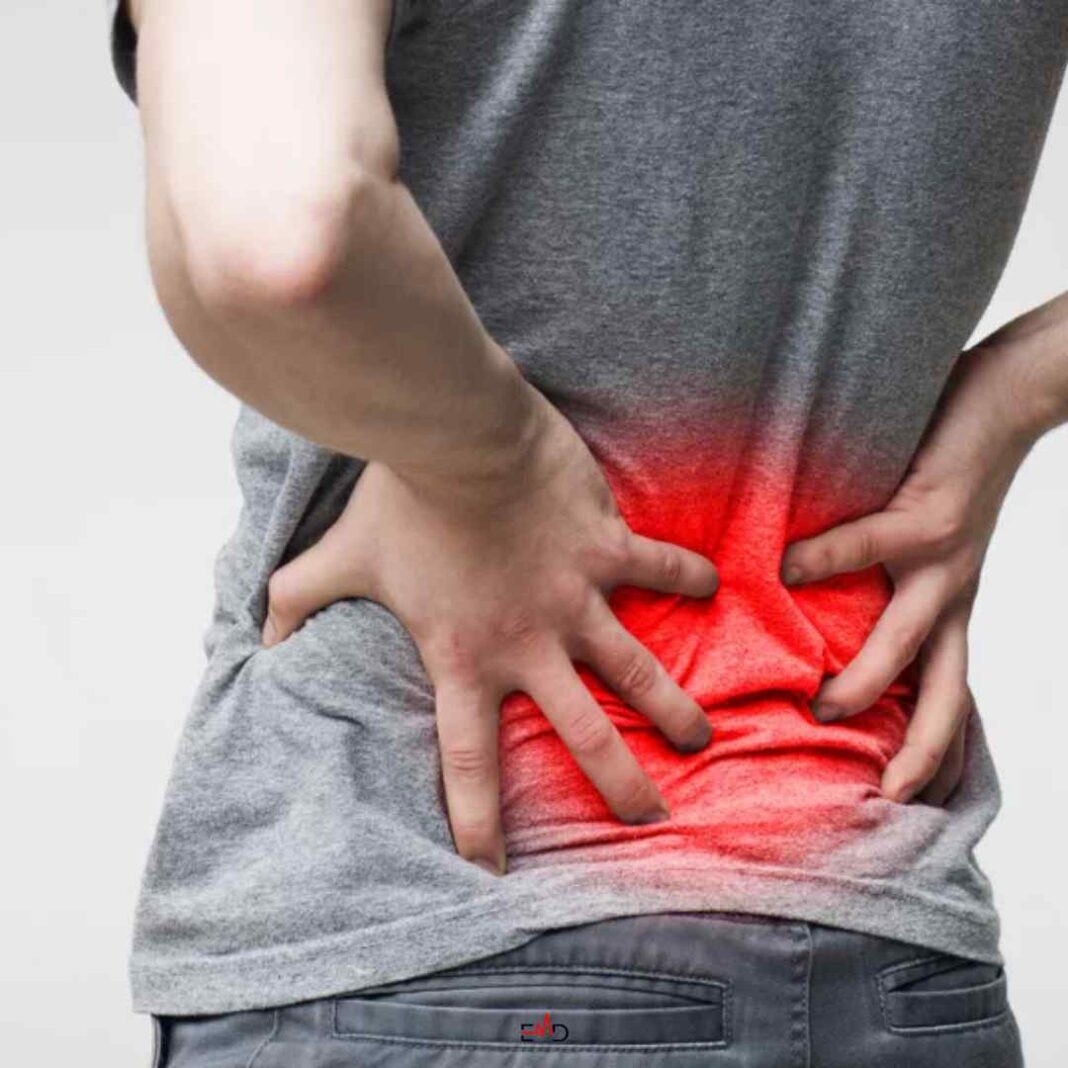Exercise Daily – Back pain is a common ailment that affects many people at some point in their lives, causing discomfort and disrupting daily activities. Finding effective relief is crucial, whether it’s a case of acute or chronic low back pain. Natural home remedies can provide safe alternatives to alleviate back pain without relying solely on medications or invasive procedures. Stretching exercises, for instance, can help relieve lower back pain by improving flexibility and reducing muscle tension.
Additionally, lifestyle changes such as maintaining good posture, using ergonomic furniture, and incorporating regular physical activity can help your back stay healthy and pain-free. For those experiencing severe back pain or chronic lower back pain, it’s important to seek guidance from a health professional to identify the underlying cause of low back pain and develop an appropriate treatment plan.
What is Back Pain?
Before delving into the remedies, it’s crucial to understand the causes and types of back pain. Back pain can arise from various factors, including muscle strains, ligament sprains, herniated discs, poor posture, and underlying medical conditions. It can manifest as acute or chronic pain, affecting different back areas, such as the lower or upper back. The discomfort can limit our mobility and hinder our daily activities, emphasizing the need for effective pain management strategies.

Home Remedies for Back Pain
Home remedies provide a convenient and accessible way to relieve back pain. However, it’s essential to consider a few factors before trying them. Firstly, it’s crucial to identify the source and severity of your pain. If you have an underlying medical condition or experience severe and persistent pain, consulting a healthcare professional is advisable. Additionally, it’s vital to understand that these remedies may work differently for individuals, and it may require some trial and error to find the most effective approach for your specific condition.
Posture and Back Pain
One of the fundamental factors contributing to back pain is poor posture. Slouching or sitting in an unsupported position for prolonged periods can strain the muscles and ligaments of the back, leading to pain and discomfort. To improve your posture and reduce back pain, practice sitting and standing with your back straight, shoulders relaxed, and chin slightly tucked in. Additionally, using ergonomic chairs, cushions, and supportive devices can provide further postural support and reduce strain on the spine.
Exercise and Stretching
Engaging in regular exercise and stretching can play a vital role in alleviating back pain. Physical activity helps strengthen the muscles supporting the spine, improves flexibility, and promotes blood circulation, all of which contribute to pain relief and prevention. Low-impact exercises like walking, swimming, and cycling are generally well-tolerated by individuals with back pain.
Strengthening exercises targeting the core and back muscles, such as planks and bridges, can also provide significant benefits. However, it’s essential tonote that before starting any exercise program, individuals should consult with their healthcare provider, especially if they have severe or chronic back pain.

Heat and Cold Therapy
Heat and cold therapy are simple yet effective remedies for relieving back pain. Applying a heating pad or a warm towel to the affected area can help relax the muscles, improve blood flow, and alleviate pain. Similarly, using an ice pack or a cold compress can reduce inflammation and numb the area, providing temporary pain relief. Alternating between heat and cold therapy can also be beneficial for some individuals. However, using these therapies cautiously and avoiding direct skin contact or excessive heat or cold exposure to prevent burns or tissue damage is important.
Herbal Remedies and Supplements
Herbal remedies and supplements have been used for centuries to alleviate various ailments, including back pain. Some herbs and supplements have anti-inflammatory properties or provide pain relief. For example, turmeric, ginger, and devil’s claw are known for their anti-inflammatory effects, while willow bark and capsaicin can help reduce pain.
However, it’s crucial to exercise caution when using herbal remedies and supplements. Consultation with a healthcare professional is recommended, especially if you have any pre-existing medical conditions or are taking other medications, as these remedies may interact with certain drugs.
Several herbs possess anti-inflammatory and analgesic properties that can help reduce back pain. Some commonly used herbs include:
- Turmeric: Contains curcumin, a powerful anti-inflammatory compound.
- Ginger: Known for its pain-relieving and anti-inflammatory properties.
- Devil’s Claw: Helps alleviate chronic back pain and inflammation.
- White Willow Bark: Contains salicin, a natural painkiller similar to aspirin.

Massage and Manual Therapy
Massage therapy and manual techniques can provide effective relief for back pain. Professional massage therapists can target specific areas of tension and apply various techniques to promote relaxation, improve blood flow, and reduce muscle tightness. Different massages, such as Swedish massage, deep tissue massage, or trigger point therapy, may be beneficial depending on the individual’s needs. However, choosing a qualified and experienced massage therapist and communicating your specific concerns and pain areas is important to ensure a tailored and effective treatment.
Stress Management and Relaxation Techniques
Stress can contribute to muscle tension and exacerbate back pain. Therefore, incorporating stress management and relaxation techniques into your daily routine can help alleviate pain and promote overall well-being. Deep breathing exercises, meditation, yoga, and progressive muscle relaxation can help reduce stress levels, relieve muscle tension, and provide mental and physical relaxation. Additionally, engaging in activities that bring joy and promote relaxation, such as hobbies, leisure time in nature, or listening to calming music, can also reduce stress and relieve pain.
Sleep and Back Pain
Quality sleep is essential for the body’s natural healing and health. When it comes to back pain, adopting proper sleeping positions can make a significant difference. Sleeping on your back or side with a supportive pillow and mattress can help maintain spinal alignment and reduce strain on the back.
Experimenting with different pillow heights or using additional pillows for support, such as placing a pillow between the knees for side sleepers, can enhance comfort and alleviate back pain. Investing in a mattress that adequately supports your body type and preferences is crucial for promoting healthy sleep and preventing back pain.

Healthy Lifestyle Habits
Maintaining a healthy lifestyle is key to preventing and managing back pain. A well-balanced diet rich in nutrients, particularly those with anti-inflammatory properties, can help reduce inflammation and support overall back health. Incorporating foods like fatty fish, leafy greens, berries, and nuts can provide essential nutrients and antioxidants that promote healing and reduce pain. Additionally, maintaining a healthy weight and engaging in regular physical activity can relieve stress on the back, strengthen the muscles, and improve flexibility and posture.
Seeking Professional Help
While home remedies can provide significant relief for back pain, there are instances where professional help is necessary. If you experience severe or chronic back pain that interferes with your daily activities, it’s important to consult with a doctor or healthcare professional. They can evaluate your condition, perform necessary diagnostic tests, and recommend appropriate treatment options. Depending on the underlying cause of your back pain, they may suggest physical therapy, chiropractic care, acupuncture, or other complementary therapies to complement your home remedies and promote optimal pain management.
Acupuncture
Acupuncture, a traditional Chinese medicine practice, involves inserting fine needles into specific points on the body. It is believed to stimulate the nervous system, release endorphins, and promote healing. Numerous studies have shown acupuncture to be effective in reducing back pain. Seek a qualified acupuncturist who is experienced in treating back pain.
Mind-Body Techniques
Stress and emotional strain can exacerbate back pain. Mind-body techniques like meditation, deep breathing exercises, and mindfulness can help manage stress and promote relaxation. These practices reduce muscle tension and improve overall well-being, indirectly reducing back pain.

Preventing Back Pain
Prevention is always better than cure, and preventive measures can significantly reduce the risk of experiencing back pain. Practising proper body mechanics, such as lifting heavy objects with your legs and avoiding twisting motions, can help prevent back injuries. Additionally, maintaining good posture while sitting and standing can minimize strain on the back and reduce the likelihood of developing pain.
Ergonomic adjustments in the workplace, such as using adjustable chairs and desks, can also contribute to back pain prevention. Regular exercise, stretching, and implementing healthy lifestyle habits as mentioned earlier, can all play crucial roles in preventing back pain and promoting long-term back health.
Conclusion
Back pain is a common issue that can substantially impact our daily lives. Fortunately, several natural remedies and lifestyle changes can effectively relieve back pain without relying on medications or invasive procedures. By incorporating posture correction, exercise and stretching, heat and cold therapy, herbal remedies and supplements, massage and manual therapy, stress management techniques, sleep optimization, healthy lifestyle habits, and seeking professional help when needed, individuals can find relief and improve their overall back health.
FAQs – Relieve Back Pain with These Natural Remedies
Q: What are natural remedies for back pain?
A: Natural remedies for back pain include various approaches such as maintaining proper posture, engaging in regular exercise and stretching, using heat and cold therapy, incorporating herbal remedies and supplements, receiving massage and manual therapy, practicing stress management techniques, optimizing sleep, adopting healthy lifestyle habits, and seeking professional help when needed.
Q: Are natural remedies effective for relieving back pain?
A: Natural remedies can be effective for relieving back pain, but their effectiveness may vary depending on the individual and the specific cause of the pain. It’s recommended to try different remedies and lifestyle adjustments to find the combination that works best for you. It’s also important to consult with a healthcare professional to ensure proper diagnosis and guidance.
Q: Can I use natural remedies alongside medical treatments for back pain?
A: Yes, natural remedies can be used alongside medical treatments for back pain. However, it’s important to inform your healthcare provider about the remedies you are using to ensure they don’t interfere with any prescribed medications or treatments.
Q: How long does it take for natural remedies to relieve back pain?
A: The time it takes for natural remedies to relieve back pain can vary depending on the individual and the severity of the pain. Some people may experience immediate relief, while others may require consistent and long-term use of natural remedies to see significant improvements. It’s important to be patient and consistent with the chosen remedies.
Q: Are there any risks or side effects associated with natural remedies for back pain?
A: While natural remedies generally have fewer risks and side effects compared to medications, it’s important to use them with caution. For example, some herbal remedies and supplements may interact with certain medications or have their own potential side effects. It’s advisable to consult with a healthcare professional before using any new remedy, especially if you have underlying medical conditions or are taking medications.
Q: When should I seek professional help for my back pain?
A: You should consider seeking professional help for your back pain if it is severe, persistent, or interferes with your daily activities. Additionally, if your back pain is accompanied by other symptoms such as numbness, weakness, or loss of bladder or bowel control, it’s important to seek immediate medical attention.
Q: Can natural remedies prevent back pain?
A: While natural remedies cannot guarantee the prevention of back pain, adopting healthy lifestyle habits, practicing proper posture, engaging in regular exercise, and maintaining a healthy weight can significantly reduce the risk of developing back pain. Taking preventive measures and incorporating these remedies into your daily routine can contribute to a healthier back.




